US, EU officials pay solidarity visit to Palestinian town ransacked by settlers
Victim slain during rampage identified as permanent resident of US; Palestinian Affairs unit in embassy urges Israel to hold those responsible for attack accountable
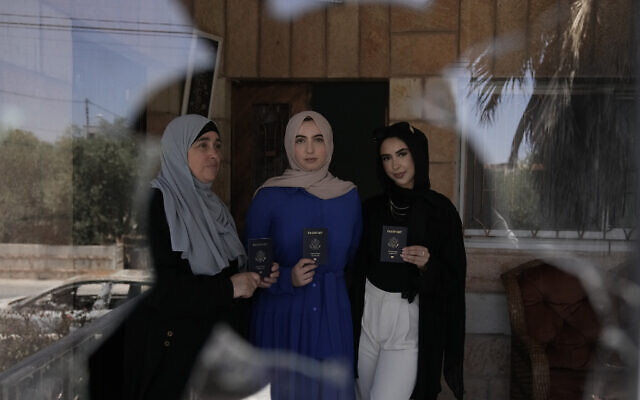
US officials and European dignitaries visited the Palestinian town of Turmus Ayya Friday to show solidarity with residents attacked by settlers in a deadly rampage earlier this week following a terror attack nearby.
Omar Jabara Qattin, a 27-year-old Palestinian killed during the settler attack, had permanent residency status in the US and members of his family have American citizenship, two US officials told The Times of Israel.
The town has a significant population of dual Palestinian-American nationals. Many of them live abroad but pay visits to the central West Bank town during the summers, including individuals who were targeted by settlers on Wednesday.
“US officials visited Turmus Ayya today to hear directly from Palestinian civilians, including some US citizens and lawful permanent residents after Wednesday’s violence,” the US Office of Palestinian Affairs, or OPA, tweeted.
“Both Palestinian and Israeli communities should be able to live free from fear and intimidation,” said the office, which is housed in the US Embassy in Jerusalem.
The US foreign service officers visited Turmus Ayya together with a group of European diplomats led by EU Ambassador to the Palestinians Sven Kuhn von Burgsdorff, whose office called for “a thorough investigation must be undertaken to bring the perpetrators of these heinous crimes to justice.”
Israeli security forces have detained four settlers on suspicion of involvement in the rampage, which followed the killing of four Israelis outside of the Eli settlement.
“Accountability and justice should be pursued with equal rigor in all cases of extremist violence. We welcome the IDF’s condemnation of these acts. Those responsible for such acts of violence must be held accountable consistent with the rule of law,” OPA said, reiterating the statement issued by State Department spokesman Vedant Patel on Wednesday.
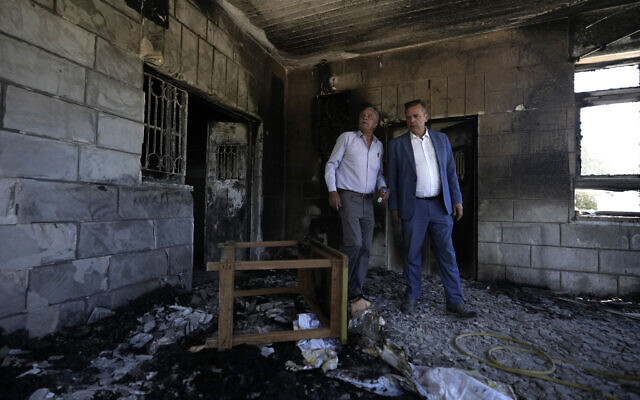
The circumstances around Qattin’s death were unclear. It came as troops entering the town to disperse the armed settlers there clashed with Palestinians throwing rocks and launching firecrackers.
Despite surveillance footage apparently showing Jewish Israelis opening fire in the town, a defense source told The Times of Israel on Friday that Israeli security authorities were unaware of gunfire by settlers during the rioting.
Turmus Ayya residents have voiced their anger at the lack of action from Washington.
“We are helpless,” Yaser al-Kam, 33, told AFP. “I’m speaking on behalf of this peaceful town where 80 percent to 90 percent of residents are US citizens. We hold passports, does this passport matter?”
While rights groups welcomed the arrests, the small number of suspects — given that hundreds were filmed participating in the riot — revived criticism of the wider lack of accountability for Israeli settlers.
“The rule is impunity from justice,” said Roy Yellin, of the Israeli rights group B’Tselem.
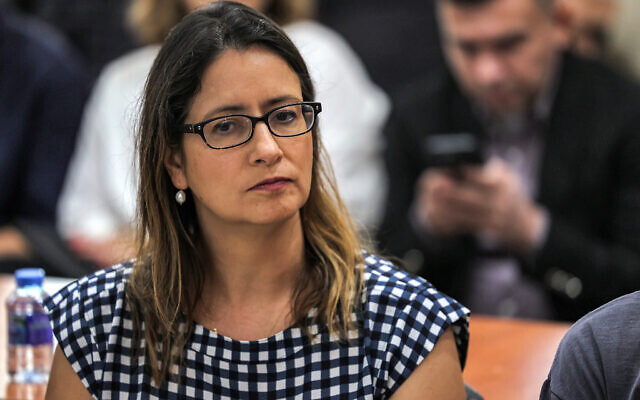
IDF spokesman Daniel Hagari told reporters he hoped “that there will be enforcement, that there will be law.” He said he expected police to make more arrests.
The Turmus Ayya rampage was one of several committed this week by settlers, who torched and vandalized dozens of Palestinian homes and cars. Their ferocity echoed a deadly settler rampage in February in the northern Palestinian town of Huwara. Some Israeli settlers were detained following that attack, but swiftly released without indictments.
The Yesh Din rights group documented the burning of at least 30 Palestinian homes, 60 cars, a gas station, multiple shops, a mosque and a school throughout northern West Bank villages this week. The number of homes and cars burned or vandalized, it acknowledged, is probably higher.
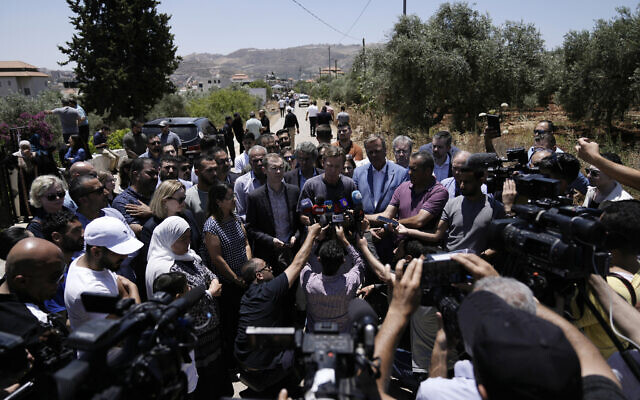
The group’s director, Ziv Stahl, alleged that the Israeli military’s inability or unwillingness to prevent settler attacks was “part of an intentional policy rather than a mistake.”
“(The army) had four months after (the attack in) Hawara to study how to deal with this and stop it,” she said. “But everything happened in broad daylight. They didn’t detain anyone on the scene. They allowed the settlers to do whatever they felt like doing.”
The Israeli military acknowledged that it had failed to prevent the waves of Israeli settler reprisals against “innocent Palestinians.”
Hagari called Wednesday’s rampage through the typically sleepy and well-to-do Turmus Ayya a “horrible event.” He said the military was beefing up forces in the area.
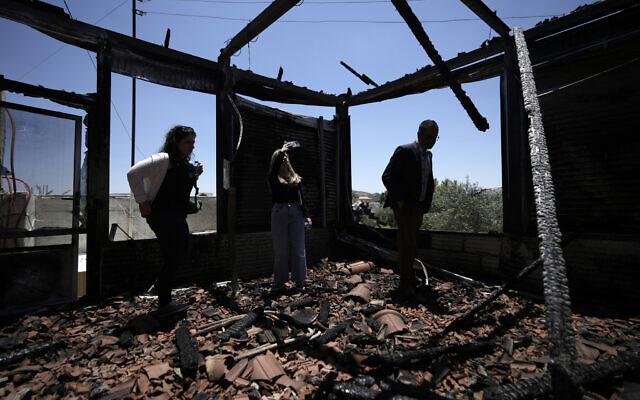
“It’s a severe event that we should prevent, and we failed to prevent it,” Hagari told reporters, adding that security forces had expected extremist vigilantes to descend on Palestinian towns after the funerals of the killed Israelis. “We did not succeed because the force wasn’t large enough to prevent it.”
Other videos from Turmus Ayya show a group of young vandals shooting, apparently at random, in the direction of Palestinian homes.
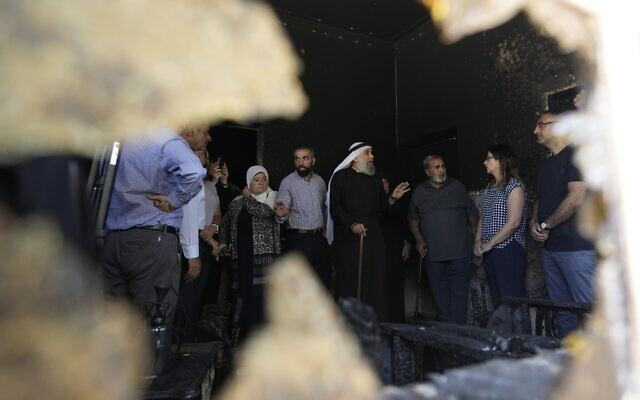
Vigilante violence against Palestinian towns continued late Thursday, with residents reporting settlers throwing stones at Palestinians in villages north of Ramallah and south of the city of Hebron, wounding at least six people.
Hagari, the Israeli military spokesperson, urged restraint. When asked what his message would be to Palestinians under Israeli security control who are worried about future settler attacks, he said that Israeli security forces are “doing the best effort that we can.”
“We are in charge of this area,” he said. “It’s part of our job.”









